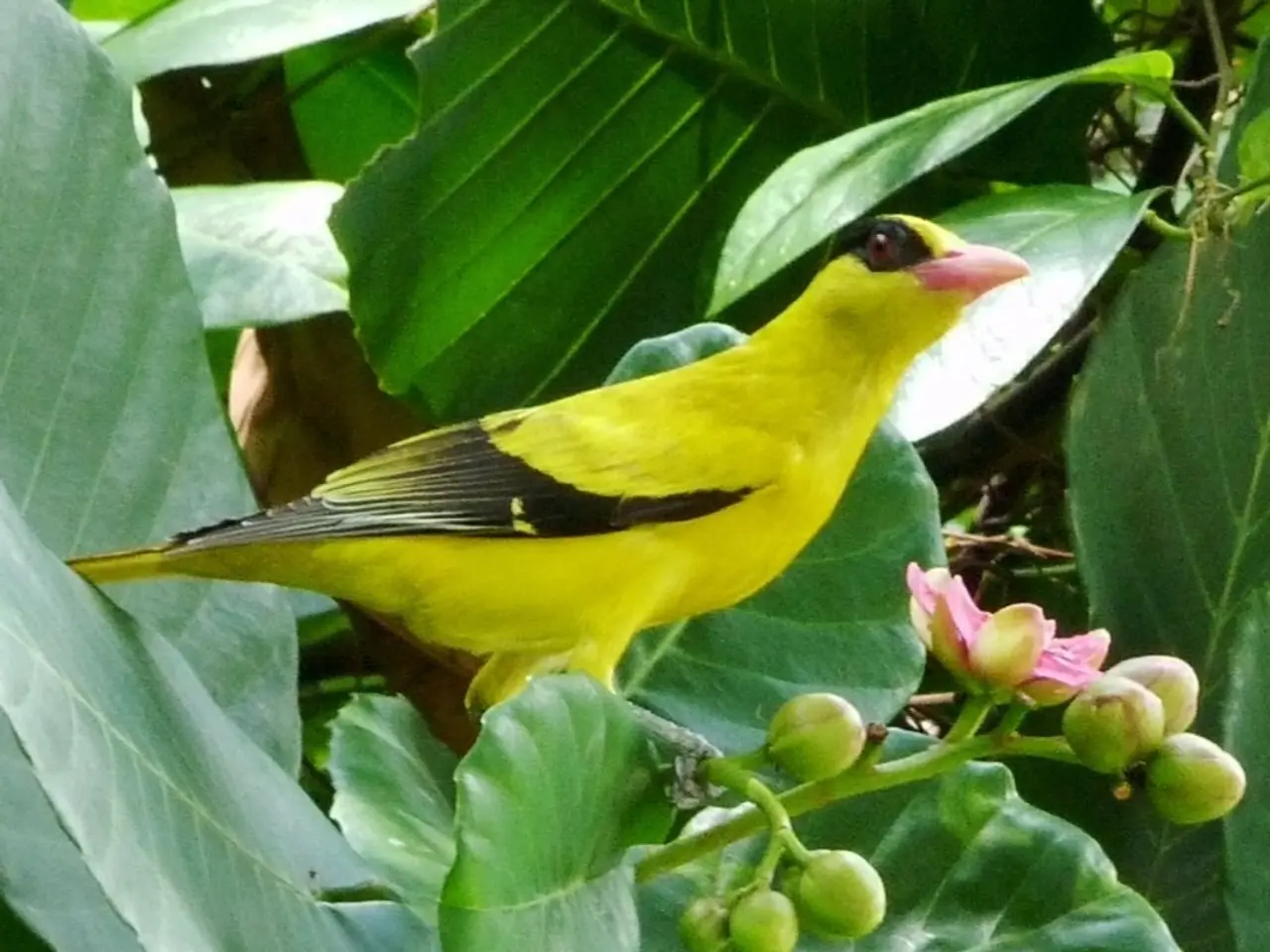Similar odor attracts songbirds, leading to increased socialization and bonding.
In a groundbreaking study, a team of researchers led by Amber Rice, an associate professor of evolutionary biology at Lehigh University, has discovered that black-capped and Carolina chickadees, two species that interbreed in eastern Pennsylvania, prefer the scent of their own species over the other. This finding, published in the journal Ecology and Evolution in an article titled "Conspecific olfactory preferences and interspecific divergence in odor cues in a chickadee hybrid zone", sheds light on the role of scent in mate choice and species recognition in hybridizing bird species.
The study, which was supported by the National Science Foundation, the Society for the Study of Evolution, and the Animal Behavior Society, used a Y-maze odor preference chamber to test the potential for scent to act as a mate choice cue in the black-capped and Carolina chickadees living in the hybrid zone in eastern Pennsylvania. The researchers used gas-chromatography mass-spectrometry to analyze differences between the species in the natural oils the birds produce from their uropygial glands.
The results showed that both male and female black-capped and Carolina chickadees exhibited a clear preference for same-species whole-body odors. Moreover, the chickadees studied did not actively avoid the smell of the other species. This finding marks the first example in currently hybridizing species that has documented songbirds can smell and prefer their species' odors.
The ecological and evolutionary consequences of these conspecific olfactory preferences are far-reaching. In the ecological realm, olfactory preferences may contribute to assortative mating that maintains species boundaries despite sympatry. By influencing behavioral isolation and social interactions, these preferences can affect population structure in mixed-species zones.
From an evolutionary perspective, strong conspecific olfactory preferences contribute to maintaining species integrity by reducing gene flow, while weak or overlapping preferences may increase hybridization rates, allowing gene introgression and potentially leading to hybrid zones or even new evolutionary paths.
In hybridizing chickadee species, such as black-capped and Carolina chickadees, olfactory cues have been shown to play a role alongside visual and acoustic signals in mate recognition. This integrative use of sensory information shapes hybridization dynamics by either promoting species-specific mating or allowing hybrid formation if cues are ambiguous or preferred by both.
The impact of these olfactory preferences on interspecific hybridization depends on their strength and species-specificity. Strong preferences reduce hybridization, contributing to reproductive isolation. Weak or overlapping olfactory preferences may increase hybridization and gene flow, impacting evolutionary trajectories of hybrid zones.
This study adds to our understanding of the role of scent in bird behavior, particularly songbirds, whose sense of smell has been understudied due to their impressive plumage and song variation. Investigating odor in future studies of songbird behavior such as mate choice, predation risk assessment, or competitive interactions are promising avenues for future inquiry.
It is worth noting that while this study does not provide direct studies on chickadee olfactory preferences, its findings are consistent with broader ecological and evolutionary principles regarding sensory-driven mate choice and hybridization in birds and other taxa. The black-capped and Carolina chickadees interbreed with one another, but their hybrid offspring suffer fitness costs, such as lower likelihood of hatching from their eggs and lower cognitive abilities than pure-species birds.
In summary, the study reveals that conspecific olfactory preferences in hybridizing chickadee species act as an important sensory mechanism influencing reproductive isolation and hybridization outcomes, with significant ecological and evolutionary implications for species integrity and gene flow.
- The faculty of Lehigh University, particularly Amber Rice who led the research, engaged in a study on science, specifically focusing on the role of scent in mate choice and species recognition among black-capped and Carolina chickadees.
- The findings of this study, supported by grants from the National Science Foundation, the Society for the Study of Evolution, and the Animal Behavior Society, suggest that the use of different natural oils produced by these bird species through their uropygial glands could be significant in understanding health-and-wellness and fitness-and-exercise, such as interpreting predation risks and competitive interactions.
- This investigation into the role of science, specifically the sense of smell in birds like black-capped and Carolina chickadees, opens up new avenues for research in the field, particularly in the areas of health-and-wellness, fitness-and-exercise, and the overall understanding of species interactions.




